
DW Documentary
Exciting stories on a wide variety of topics from around the globe: DW brings viewers background reports from the worlds of politics, business, science, culture, nature, history, lifestyle and sport.
Seasons
1. DW Documentary
Air Date: 2017-01-09
Exciting stories on a wide variety of topics from around the globe: DW brings viewers background reports from the worlds of politics, business, science, culture, nature, history, lifestyle and sport.
1. Tomatoes and greed- the exodus of Ghana's farmers
Air Date: 2020-01-22
2. Drought and floods- the climate exodus
Air Date: 2020-01-29
3. Looted art in the Third Reich
Air Date: 2020-02-10
4. Germany's role in NATO and the world
Air Date: 2020-02-13
5. Dreadly waste from raw materials
Air Date: 2020-02-23
6. Sustainable business, rethinking growth- Founders Ballet (1/3)
Air Date: 2020-02-28
7. The clothes we wear
Air Date: 2020-03-03
8. The kindnapping campaign of Nazi Germany
Air Date: 2020-03-11
9. Fighting the migration challenge in Malaysia- Founders Valley (2/3)
Air Date: 2020-04-20
10. Born poor, die poor? How to tackle poverty- Founders Valley (3/3)
Air Date: 2020-04-27
11. The death of Adolf Hitler
Air Date: 2020-04-30
12. Have you ever heard of the “Emoji Commission”
Air Date: 2020-05-04
13. Jewish life on Poland
Air Date: 2020-05-05
14. Corona diaries
Air Date: 2020-05-17
15. The 3D printing revolution
Air Date: 2020-05-23
16. Indonesia: Diversity under threat
Air Date: 2020-05-27
17. Bayer and de bees
Air Date: 2020-06-16
18. The Russians- An intimate journey through Russia (1/2)
Air Date: 2020-06-19
19. The Russians- An intimate journey through Russia (2/2)
Air Date: 2020-06-19
20. Climate change- living on the water
Air Date: 2020-07-08
21. Forgotten wrecks are a time bomb
Air Date: 2020-07-09
22. Traveling through North Korea
Air Date: 2020-07-10
23. Wind power getting headwind in Germany
Air Date: 2020-08-11
24. Preserving Gaza's photographic history
Air Date: 2020-08-12
25. Sex trafficking in Nigeria
Air Date: 2020-08-21
26. Superfoods- is healthy eating just hype?
Air Date: 2020-08-22
27. Generation Putin
Air Date: 2020-08-23
28. Thai berry pickers in Sweden
Air Date: 2020-08-29
29. How coronavirus is changing the world
Air Date: 2020-09-01
30. Africa's looted art
Air Date: 2020-09-02
31. The murder of Jamal Khashoggi
Air Date: 2020-10-01
32. Fine-tuning the climate
Air Date: 2020-10-14

33. The power of pharmaceutical companies
Air Date: 2020-10-28
How much is a human life worth? An innovative cancer therapy promises to save lives. But it is extremely expensive. Will the insurance companies pay for it? What is the manufacturer's return on investment? And do lobbyists drive up prices? A paradigm shift has taken place in the pharmaceutical industry: Whereas high drug prices used to be justified by research costs, the industry is now using the value of gained lifetime to argue its case.
34. Boeing- what caused the 737 max to crash?
Air Date: 2020-11-01
35. Lehmann- the last cultural diplomat
Air Date: 2020-11-15
36. Love and sex in the internet age
Air Date: 2020-11-18
37. Street children in the Philippines
Air Date: 2020-11-19
38. What happened to Otto Warmbier in North Korea?
Air Date: 2020-11-27
39. The marriage market for Indian HIV patients
Air Date: 2020-12-02
40. Oil promises- how oil changed a country
Air Date: 2020-12-03
41. China's gateway to Europe
Air Date: 2020-12-07
42. Coronavirus complications
Air Date: 2020-12-22
43. Tour of the Arctic (1/2)
Air Date: 2020-12-27
44. Tour of the Arctic (2/2)
Air Date: 2020-12-27
1. Antarctica: A message from another planet
Air Date: 2021-01-02

2. Pakistan - Journey Across a Land of Contrasts
Air Date: 2021-05-27
Pakistan, the "Land of the Pure" in Urdu, remains a paradox. Known as a bastion of radical Islam, the country is striving to become a modern state.
1. An endless war: Irán, Israel and the United States (1/2)
Air Date: 2023-01-03
Since the Islamic Republic of Iran was founded in 1979, there has been a war between Iran, Israel and the US. The war has never been officially declared, and there has been no real reconciliation. Part One of this two-part documentary focuses on the origins of the conflict between Iran and Israel. It began when the Israelis invaded Lebanon to confront a new Lebanese Shiite force backed by Iran: Hezbollah. Based on painstaking archival research and featuring high-profile players in Israel, Iran, Lebanon and the US, the film looks back on the more than forty years since Iran’s Islamic Revolution. It explores key moments and provides ways of understanding the new Middle East.
2. An endless war: Irán, Israel and the United States (2/2)
Air Date: 2023-01-03
3. Russia's forest under threat
Air Date: 2023-01-05
4. Globalization: Winners and losers in world trade (1/2)
Air Date: 2023-01-06
5. Honduras: Escaping violence and poverty
Air Date: 2023-01-11
6. Globalization: Winners and losers in world trade (2/2)
Air Date: 2023-01-13

7. The dirty business of beauty
Air Date: 2023-01-25
Jade for courage, amethyst to improve concentration and rose quartz for love. Social media influencers are driving demand for quartz and gemstones. But these pretty materials are mined under questionable conditions in the Global South. From the European beauty industry to middlemen in Asia to the mining regions: Nadja Mitzkat gets to the bottom of the esoteric gemstone production chain. The reporter finds that many of the beauty products originate in Madagascar. She travels to the African island state to talk to local people about their working conditions.

1. The toxic waste from drugs like ecstasy, speed or crystal meth
Air Date: 2024-01-02
Whether it’s ecstasy, speed or crystal meth, producing illicit synthetic drugs generates toxic waste. This often ends up in the local environment, posing a threat to humans, wildlife and the land. We look at cases in the Netherlands and Germany.
2. How much influence do the super rich have?
Air Date: 2024-01-04
3. The lives of the Amish in the US
Air Date: 2024-01-05

4. How artificial light threatens nature
Air Date: 2024-01-11
Many animals and plants are threatened by artificial light. Numerous organisms have found their evolutionary niche in the dark of night, and now have to adapt to bright nights. Not all of them succeed.
5. China's growing influence in Europe- Serbia and the New Silk Road
Air Date: 2024-01-14
6. Dancing despite war- From war-torn Ukraine to the big ballet stage
Air Date: 2024-01-17
7. Personalized nutrition- Could genética tests improve your health and your figure?
Air Date: 2024-01-18
8. Mental health and resilience- the secrets of inner strength
Air Date: 2024-01-20
9. Transylvania- The heart of Romania
Air Date: 2024-01-25
10. The mysterious death of an SS officer: a Nazi true crimen story
Air Date: 2024-01-27
11. Behind Asia's cyber slavery
Air Date: 2024-01-29

12. Ticking time bombs- What risk do abandoned oil and gas wells pose?
Air Date: 2024-01-31
The extraction of gas and oil poses a greater threat than previously thought. Leaks at disused drilling sites can trigger an environmental disaster at any time. If toxic substances escape, human lives are at risk. In many countries, oil and gas companies are legally obliged to seal abandoned wells immediately. However, the implementation and monitoring of these regulations is sporadic. Activists and whistleblowers are constantly trying to draw attention to this abuse.

13. Russia's energy empire: Putin and the rise of Gazprom
Air Date: 2024-02-03

14. The dark side of the champagne industry
Air Date: 2024-02-06
Champagne: a symbol of glamor and celebration. Tens of thousands of migrant workers head to France every year to harvest grapes in the Champagne region. But some pay a high price to bring this luxury product to market.

15. Cryptocurrencies- The future of money?
Air Date: 2024-02-07
For some, cryptocurrencies are a dangerous bubble. For others, they represent the future of money. But what are the actual uses - and risks -- of cryptocurrencies? This documentary explores how crypto is altering global financial architecture.

16. How mass tourism is endangering the Dolomites
Air Date: 2024-02-08
Mass tourism in South Tyrol is endangering the unique beauty of the Dolomites, a UNESCO World Heritage Site. The region has just 530,000 inhabitants, while as many as 33 million overnight stays are recorded every year. Too many, according to locals. With the South Tyrolean government's Tourism Development Concept 2030+, the debate over how to deal with the region’s natural heritage has grown heated. What is a World Heritage designation actually worth? Does it really help to protect a unique landscape - or just serve to market it?
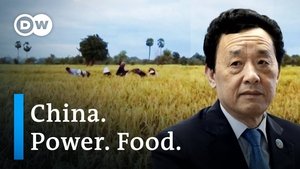
17. China's grab for the UN's Food and Agriculture Organization
Air Date: 2024-02-09
18. Russia's Gazprom- Corrupt politicians and the greed of the west
Air Date: 2024-02-10

19. Meeting death on our own terms
Air Date: 2024-02-15
Modern medicine is making it possible to keep people alive for longer and longer. However, hospitals can also earn a lot of money by treating the seriously ill, especially in intensive care units. Intensive care physician Uwe Janssens believes that, when it comes to death and dying, economics often play a key role. Doctors, nurses and the hospital's chaplain meet regularly to discuss ethics: Should a critically ill patient be assisted in dying, or kept alive artificially? What is the aim of therapy? What is the patient's will? What is medically feasible, what makes sense? Even for doctors, decisions at the end of a patient's life are never easy. The film touches on a taboo in Western society. How can people be protected from artificially extended morbid illness, yet still receive the medical help they need and want?
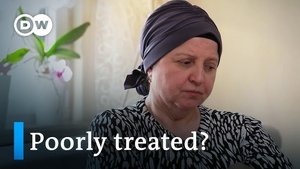
20. Racism in medicine
Air Date: 2024-02-21
This documentary hears from people who’ve been turned away or received inadequate care in a medical emergency; from midwives who report on racism in the delivery room; from students who criticize teaching according to white norms; as well as from doctors who reflect on the problem. The film shows just how dangerous conscious or unconscious racism in the healthcare sector can be. Its findings are based on the results of the first representative study on the issue in Germany, published in November 2023 by the German Centre for Integration and Migration Research.
21. Ayahuasca boom in Brazil
Air Date: 2024-02-25

22. Barbie: The world's greatest influencer?
Air Date: 2024-02-28
She’s available in all skin colors, she’s diverse and inclusive. Created by businesswoman Ruth Handler, unveiled in New York in 1959, Barbie’s long been a money-maker. With millions of followers on Instagram, she’s now an influencer, too. The documentary dives into the world of Barbie content creators, meets the most famous collector (who owns 18,500 dolls), and speaks to fans and feminists. Barbie: the first doll with her own career. Still, she’s an object of love and hate. More than any other toy.
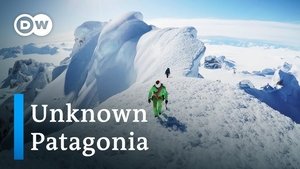
23. Extreme climate research- On the road in the icefields of Patagonia
Air Date: 2024-03-03
Patagonia's icefields are very difficult to access. As a result, they remain largely unexplored by climate researchers. Now, a scientist and two extreme mountaineers are venturing into this hard-to-reach area, in search of new data for climate research.

24. Can algae save the world?
Air Date: 2024-03-10
The research project called "Waste to value”, Kaiserslautern University of Applied Sciences biologist Michael Lakatos and his team are investigating the potential uses of microalgae. Some species form limestone, which could be used to make bio-cement - thereby reducing CO₂. Other forms of algae could serve as a biologically-based plastic substitute. Yet others could produce edible dyes - using sunlight and CO₂. The researchers are traveling the world in search of especially talented algae and bacteria. The filmmakers accompany the team members for almost a year - even following them into a Spanish cave used to emulate life on Mars. After all, algae could have many potential uses in space, including as a foodstuff for astronauts.

25. New quantum computers- Potential and pitfalls
Air Date: 2024-03-12
A Swiss start-up that produces artificial lungs is looking towards quantum algorithms to become more efficient and, for example, help find a cure for cancer and rendering experiments on animals redundant. A private investor has brought these goals one step closer by allowing Swiss start-ups to use quantum computers commercially. The technology is still considered to be at the beginning of its development curve, science does not yet know its full capabilities. Big players such as Google and IBM are in competition to create ever newer and faster quantum computers. This film opens a window into the world of supercomputers, and explores how their potential and their dangers seem to exist side by side.
26. Pyramids, dark matter & the Big Bang theory
Air Date: 2024-03-13

27. AI supremacy: The artificial intelligence battle between China, USA and Europe
Air Date: 2024-03-16
The documentary follows key figures from the tech industry, science and politics who are working on artificial intelligence around the globe. They are tasked with making far-reaching decisions within a very short space of time. How can the technology’s potential be harnessed, while preventing a science fiction dystopia? The potential benefits of the currently emerging super-infrastructure are as limitless as its existential dangers. The latter include disinformation and election manipulation, as well as new forms of warfare and surveillance.
28. The Mississippi - A journey through the heart of America
Air Date: 2024-03-21
29. NATO - The largest military alliance in the world
Air Date: 2024-04-04
30. Colonial roots of the genocide in Rwanda
Air Date: 2024-04-05
31. A Holocaust survivor returns - Margot Friedländer in Germany
Air Date: 2024-04-10
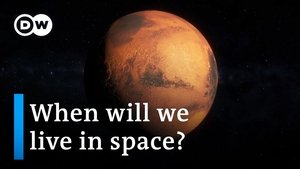
32. Mars - Life on the Red Planet?
Air Date: 2024-04-12
The new robot NASA sent to Mars is called "Perseverance". Its mission? To search for evidence of past life on the Red Planet - an important and ambitious endeavor. It took years to design the space probe and its small helicopter drone, called "Ingenuity". This documentary follows the rover's development, right up to its landing in the Jezero Crater on February 18, 2021.

33. Burnout - When does work start feeling pointless?
Air Date: 2024-04-27
Superfluous meetings, endless paperwork and incompetent managers - sound familiar? Jobs that entail a steady stream of seemingly pointless demands can damage our health in the long-term. This film takes a humorous look at how we waste potentially valuable time in the workplace.

34. Illegal leather - How the car industry is threatening the rainforest
Air Date: 2024-05-03
Brazil’s tannery industry exports products worth 1.5 billion Euros every year. Cattle meat and hides are a huge economic driver. But this business often involves the illegal destruction of the rainforest for grazing land. With footage secretly filmed in abattoirs and interviews with insiders the team retraces the production steps of this illegal leather right to its source. From the Brazilian rainforest, via shady middlemen to German car dealerships offering the latest models by BMW, Mercedes & Co. - complete with their luxurious leather interiors. The film embarks on a journalistic quest for clues that turns into an economic crime thriller. After all, this isn’t an isolated case, it’s systematic environmental exploitation. Despite the many glossy brochures touting the carmakers’ sustainability credentials, these complex supply chains are often opaque - keeping their impact on people and the environment in the dark.

35. The International Space Station: a unique space project
Air Date: 2024-05-07
This documentary explores the singular historical situation that made the construction of the ISS possible and hears firsthand from crew members from various nations. It sheds light on the challenges that ISS crews have faced over the years, such as the fact that, for a long time, female astronauts were unable to carry out space walks because there were no suitable space suits available for women. Nonetheless, the International Space Station is proof that nations can work together towards incredible common goals - not for nothing has it been called "humankind’s most valuable machine”. But the end fast approaching. The project was supposed to end in 2024, until the US government agreed to continue operating the ISS until 2030. In 2031, the space station is due to be brought back to Earth using a controlled process of de-orbiting.
36. Women as spoils of war at the end of World War Two
Air Date: 2024-05-08
In early 1945, at least 860,000 women and girls in Germany were sexually abused by Allied soldiers. The victims, and the children they bore after being raped, suffer trauma to this day. Many remained silent throughout their lives and took their stories to their graves. The documentary hears the stories of some of these victims, talks to their children and grandchildren, as well as historians to reveal how the trauma has affected them throughout their lives. The documentary also shows how important it is to confront the taboo head on: After all, sexual violence against women and girls is still very much part of modern warfare.
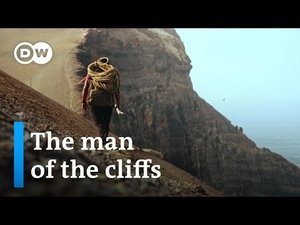
37. Between the desert and the Pacific Ocean
Air Date: 2024-05-16
There are men on this planet who challenge death every day to feed their families. Between the desert and the Pacific Ocean, in the region of Huarmey in Peru, stand vertiginous cliffs. Men like Purunga must overcome them.

38. Birds - Survivalists with special powers
Air Date: 2024-05-22
Almost of a third of all birds in the US have disappeared since 1970. That’s just under three billion animals. In Europe, the number has been decimated by around 25 per cent. Climate change and the destruction of natural habitats pose the greatest challenges. Conservation efforts are more urgent than ever.

39. How car tires drive deforestation
Air Date: 2024-05-23
Rainforests are sacrificed to provide the rubber used in tires, even though alternatives exist. 70% of the global rubber harvest goes to the tire industry, which must now meet new supply chain rules approved by the European Parliament in April 2024. The rules are designed to ensure due diligence and corporate accountability. Once the law takes effect, manufacturers in the EU will need to show their tires do not contain natural rubber from deforested land. This certification process poses a problem for producers. Most natural rubber is produced in Asia. The supply chains from rubber farmers through various intermediaries to Europe have, however, been largely nontransparent to date. Companies are therefore exploring alternative materials and methods. In addition, discarded old tires could be retreaded, recycled, and put back on the market - instead of ending up on a landfill site. Is the industry having a genuine change of heart, or are these merely examples of greenwashing?

40. Floods, heavy rain, extreme weather - Why we need to build differently
Air Date: 2024-05-26
Billions of people in cities around the world are affected by climate change. Sustainable urban planning can help reduce risks and improve life in urban centers.

41. What is life like without smells?
Air Date: 2024-05-30
Since Covid-19 and the symptoms of loss of smell and taste, many people have begun to realize just how important smell is in our lives. Our sense of smell is the oldest sense we have. Not only the enjoyment of our food, but also our memories, emotions and social interactions are influenced by it. The loss of the sense of smell, or ‘anosmia’, significantly impairs people's experience of the world. In this documentary, people talk about their lives without smell. But what if you've never been able to smell before? Lauren Ramoser only noticed at the age of 11 in chemistry class that the strong-smelling acids seemed to smell "corrosive" to her classmates, but that she didn't notice anything herself. How does this affect a person’s life?

42. India's new generation between luxury and poverty
Air Date: 2024-06-04
India, a nation on the verge of becoming a superpower? The country has overtaken China and is now the world’s most populous nation. The average age is 28. What dreams and what opportunities for advancement does this generation in India have today?

43. European migration? How a continent is sealing itself off
Air Date: 2024-06-06
There’s hardly a more divisive topic in Europe than the issue of immigration. When the refugee crisis began in 2015, the EU welcomed many with open arms. Now, tightened borders have become the norm.
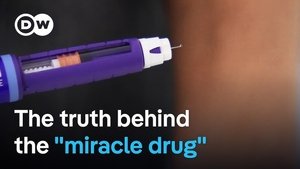
44. Ozempic - What’s the truth behind the hype?
Air Date: 2024-06-25
The hype is enormous: A new weight-loss drug is being aggressively marketed on social media - promising patients a quick fix for obesity. But what’s the truth behind the hype?
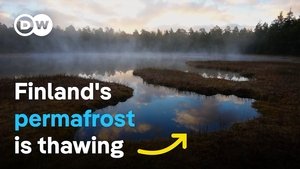
45. Melting wetlands - How can nature slow down climate change?
Air Date: 2024-07-03
Peatlands and wetlands play an important role in global warming because they influence the greenhouse gas cycle. But not all bogs are the same. Some bind carbon, while others release it into the atmosphere in the form of carbon dioxide and methane emissions. The film follows the work of two research teams investigating the influence of moors and swamps on the climate. Greenhouse gases escape when permafrost moors melt. But swamp and mire areas that have been thrown out of balance, for example by plantation farming for the production of palm oil, can actually accelerate climate change. The documentary explains what happens when carbon escapes from swamp and moorland areas into the atmosphere and how nature's potential can be used to slow down climate change.

46. Isolation and dementia - Why we should protect our ears
Air Date: 2024-07-07
If you’re young, you don’t usually do enough to protect your hearing. But more than a billion youngsters are at risk of hearing loss worldwide. People often turn to assistive devices when it’s already too late. Hearing loss can result in isolation and accelerate the onset of dementia. We introduce young people suffering from hearing loss as a result of listening to music too loudly for too long, look at everyday situations that put extreme strain on our hearing and present new solutions from the hearing aid industry. In the making of this film, directors Duki Dror and Jens Strohschnieder revisit scenes where the 7 October attack took place and speak to survivors, journalists and security experts.

47. Raid on the Atlantic - Overfishing and exploitation of the sea
Air Date: 2024-07-11
West African waters once had some of the richest fish stocks in the world. Today they are severely depleted. Fishermen in Senegal fear for their livelihoods. Europeans, Chinese, Russians and Turks have overfished the waters.

48. Nuclear fusion's hope - The dream of endless clean energy
Air Date: 2024-07-12
Could nuclear fusion generate an infinite amount of clean energy? In contrast to nuclear fission, nuclear fusion looks favorable when it comes to environmental and safety concerns. Could nuclear fusion be the solution to our environmental problems? The film explains how nuclear fusion works and what role it could play in the European energy landscape, the challenges involved, the difference between fission and fusion and whether this just might be the solution to humanity's hunger for energy.

49. America’s right-wing radicals - US veterans against democracy
Air Date: 2024-07-13
On 6 January 2021, hundreds of Donald Trump supporters stormed the Capitol in Washington. Five people were killed and many injured. Some 15 per cent of those involved were former members of the US military or police. The US-American filmmaker Charlie Sadoff and his co-writer and producer Kenneth Harbaugh both used to be in the military, something that allowed them to delve deep into the veterans’ world. Through them, they gained access to violent rightwing extremist circles in America, including anti-government militias such as the Proud Boys, the Three Percenters and the Oath Keepers. These groups - organized and led by well-educated, highly motivated military veterans - represent the greatest threat to democracy in the United States today. The documentary examines the complexity of this development, tracing it back to its historical roots.

50. Turning vapor into drinking water
Air Date: 2024-07-17
Turning vapor into drinking water: a bizarre response to the impact of climate change? Or a stroke of genius? It’s hoped that the cloud catchers - nets that fish water out of the air - will provide a solution to water shortages worldwide. But how does it work?
51. Nicaragua - 45 years after the revolution, a return to dictatorship
Air Date: 2024-07-20
This is documentary film about the eventful period following the victory of the Sandinista revolution in Nicaragua and the commitment of thousands of West German supporters who traveled to Nicaragua in the 1980s. What has become of their dreams, wishes and hopes 45 years later?

52. Toxic and tenacious - How "forever chemicals” are damaging our health
Air Date: 2024-07-26
Coated pans, waterproof clothing, refrigerants for air conditioning systems. All these everyday items contain PFAS. This group of chemical compounds makes life more convenient. But PFAS compounds are also highly controversial because they are both toxic and long-lasting. Known as "perpetual chemicals”, PFAS accumulate in the environment and also enter the human body. The film examines the question of whether PFAS should be banned because they threaten our health. Or should they continue to be used because they are so practical and virtually irreplaceable in our everyday lives?
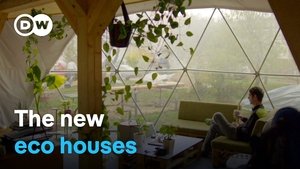
53. Building in harmony with nature
Air Date: 2024-07-31
Building in harmony with nature, using renewable materials from the region. Sustainable building is still an adventure. But in future, it’s likely to be necessary. The future lies in understanding a house as a place where material is stored, according to construction experts committed to sustainable construction. Building within existing buildings is their top priority. It saves the most CO2 and conserves the most resources - that approach is better than any new building, no matter how ecological. They’re calling for a change in regulations to bring standards for renovated houses in line with the realities. Because as long as it’s easier and cheaper to demolish and rebuild from scratch, only a few builders will be enthusiastic about conversion.

54. Protecting the climate
Air Date: 2024-08-02
Can the climate still be saved? Scientists like oceanologist Mojib Latif are disillusioned. Neither the warnings from climate researchers nor public protests have prompted sufficient action from politicians and big business interests. Why? This question is the subject of this film. One factor is the sluggish political action of governments in almost every country in the world -- despite numerous climate protection conferences. The lack of political action can often be traced to large fossil fuel companies, which have prevented the implementation of effective environmental and climate protection measures, fearing for their profit margins. The film shows which hurdles still need to be overcome -- economic and political, as well as very human ones - and how science can help.

55. Mental health and body image
Air Date: 2024-08-04
For years, Sofia suffered from eating disorders and depression. By talking openly about the issue, she hopes to help others. Like many young people, 22-year-old Sofia struggled with body dysmorphia for years. She started using her Instagram account, @mechoosinglife, to raise public awareness of mental illness, and provide support to others affected by body dysmorphia. The move marked the beginning of her ongoing healing process, and her conscious decision to choose life. [Warning: This documentary addresses the topic of suicide. If you or someone you know is suffering from serious emotional strain or suicidal thoughts, do not hesitate to seek professional help. You can find information on where to find such help, no matter where you live in the world, on this website: https://www.befrienders.org/ ]

56. Trophy hunting
Air Date: 2024-08-08
Elephants, antelopes, lions. Rich people kill animals threatened with extinction, then hang them on their walls as trophies. On the face of it, trophy hunting seems morally reprehensible. But could it be more complicated? Trophy hunting is big business. Germany is the second most important country in the world when it comes to trophy hunting. There is no other country in Europe where so many hunters set off every year to shoot animals abroad. Why is this allowed and who benefits from it? Is it just a bloody hobby, or might it contribute to species conservation?
57. How the Nazis concealed their atrocities
Air Date: 2024-08-09
The Nazis meticulously planned and documented their acts of mass murder. They were just as meticulous when it came to covering their tracks. Their systematic, cruel methods are a chapter of war history that’s still largely unknown. The documentary film accompanies the French organization Yahad-In Unum as it conducts research in Ukraine. In the Lviv region, researchers attempt to identify the locations of mass shootings and find any eyewitnesses who might still be alive and able to recount what they saw.

58. Endometriosis
Air Date: 2024-08-18
190 million women around the world suffer from endometriosis, a chronic disease of the abdomen. For a long time, medicine didn’t take these women’s complaints seriously. But now, the taboo issue is finding a wider audience. Women are breaking their silence. It takes an average of seven years to get a diagnosis - a long time for women to be left suffering. Their periods are extremely painful, but the pain can also come at any time during the menstrual cycle, sometimes affecting the entire body. This is often accompanied by heavy menstrual bleeding, bowel problems, exhaustion, pain during sex and sometimes problems conceiving. The pain is caused by uterus-like cells that colonize areas outside the uterus, for example the ovaries, intestine or peritoneum.
59. Varanasi - Facing death without fear
Air Date: 2024-08-22

60. Urban rats
Air Date: 2024-08-23
Rats are seen as transmitters of disease and are hated in the West. But to this day, we don’t know very much about this feared animal. Science is only just beginning to properly delve into the world of rats and "rehabilitate" their image.
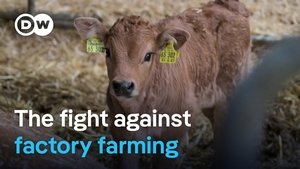
61. Butchers fighting cheap meat
Air Date: 2024-08-30
Mark Junglas is disgusted by conventional factory farming. The trained butcher wants to do better. Eating meat is fine, he says. But only if the animals have led a good, species-appropriate life -- and experience a stress-free death. But getting the farm out of the red while holding his own against the influx of cheap meat is no easy task. Even though animal welfare is very much in vogue, few people are prepared to pay more for organic meat.

62. Will artificial intelligence save us or kill us?
Air Date: 2024-09-01
Will artificial intelligence make life better for humans or lead to our downfall? As developers race toward implementing AI in every aspect of our lives, it is already showing promise in areas like medicine. But what if it is used for nefarious purposes? What are the promises and perils of AI? And who gets to decide how it will be used?

63. The fight against exploitation of migrant workers in Italy
Air Date: 2024-09-17
Yvan Sagnet has been campaigning against the exploitation of migrant workers in Italy for years. His organization No Cap works to ensure fair conditions for laborers in the agricultural industry.

64. Smart insects
Air Date: 2024-09-18
The latest research shows we’ve long underestimated the intelligence of insects. Bumblebees, for example, succeed at behavioral tests also passed by intelligent crows. They use tools to reach nectar in an artificial flower. The insect world is much more complex than previously thought. One reason is that any species with a wide range of diverse individuals can better adapt to climate changes - an evolutionary advantage for survival.

65. Climate change or climate hoax? Skeptics and activists
Air Date: 2024-09-29
Climate change is real, and it is dangerous. Some people are actively trying to stop it. Others deny or intensify it - or suppress information. Most don’t bother at all and continue to contribute to global warming through their lifestyle.

66. How climate change threatens coffee production
Air Date: 2024-10-01
Climate change could halve the amount of land suitable for coffee production by 2050. In a bid to save one of the world’s most popular drinks, many people are busy experimenting with more resilient coffee varieties and sustainable growing methods.

67. Trauma in the Middle East: The terror of Hamas and Israel's war in Gaza
Air Date: 2024-10-05
How was the attack on the Israeli state prepared? How was it even possible? To mark the first anniversary of the Hamas attack, the documentary film analyzes the failures of intelligence services, politics and the army. Could the catastrophe have been prevented? What motivated Hamas to carry out the attack? And what was Israel’s response - with which consequences? In the making of this film, directors Duki Dror and Jens Strohschnieder revisit scenes where the 7 October attack took place and speak to survivors, journalists and security experts.
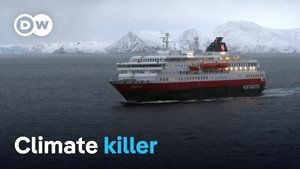
68. How can ships become cleaner?
Air Date: 2024-10-06
Soot, particle pollution and heavy fuel oil: freighters and cruise liners are real climate killers. It’s high time for a change of course on the seas. The film shows how both innovations and tried-and-tested ideas can make shipping cleaner. With countless innovations and strict regulations, Norway is leading the way in the transition to emission-free shipping. The Scandinavians are focusing on electric motors and hybrid technologies. Climate change is already being felt in the Norwegian Arctic - another reason why the government is getting serious. From 2026, only emission-free ships will be allowed to sail in Norway's most beautiful fjords. And climate-friendly tourist ships are already sailing along the traditional postal ship route.

69. Tel Aviv and October 7
Air Date: 2024-10-07
The Hamas terror attack of 7 October 2023 has had profound consequences in Israel, Gaza and beyond. This film asks how those in Tel Aviv have reacted to the subsequent war, and what they expect the future will bring.
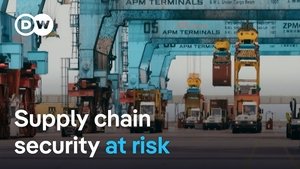
70. How pandemics, wars and disasters jeopardize global trade
Air Date: 2024-10-27
Pandemics, wars and natural disasters jeopardize trade and supply chain security. Even in the best of times, international supply chains often lack the necessary transparency, especially when it comes to poor working and environmental conditions.
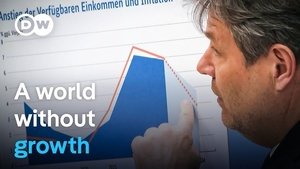
71. Is prosperity without economic growth possible?
Air Date: 2024-10-30
Critics of growth want to bring the economy into harmony with the environment and social well-being. They see a world that functions without constantly wanting more. But is that realistic?
72. Hiding and surviving - Growing up under National Socialism
Air Date: 2024-11-06
"Everyone who survived has a story that you simply can't believe.” Charlotte Knobloch survived the Holocaust - because farmer's wife Kreszentia Hummel passed her off as her own, illegitimate child and kept her hidden on her farm. Now Charlotte Knobloch, she’s President of the Jewish Community of Munich and Upper Bavaria and former President of the Central Council of Jews in Germany. In this film, she tells viewers about her own life - and a past that is full of fear and loss. Despite all her devastating experiences, she would go on to become one of the most important figures representing Jewish life in the German-speaking world. She has dedicated her life to the fight for peace, equality and democracy.
73. Europe’s deadly migration policy
Air Date: 2024-11-09
The European Union is investing money in equipping and training North African security forces with the aim of stopping migrants to Europe before they reach the Mediterranean coast. However, this approach is causing enormous human suffering that has so far gone largely unnoticed by the European public. In this film, an international research team documents the systematic arrest and abduction of migrants by North African security forces co-financed by the EU. The film shows how thousands of migrants are transported to remote areas and left to their fate without protection, while EU representatives continue to conclude new migration agreements with North African states.
74. How heatwaves impact our lives
Air Date: 2024-11-10
Heatwaves. They are occurring more and more frequently, lasting longer and becoming more intense. In Europe, temperature records are constantly being broken. One question has scientists particularly concerned: How hot will it get in the future? What adaptation options are available to us in the face of the new heat reality?
75. What are the consequences of Germany's ban on chick killing?
Air Date: 2024-11-14
Roosters bring little profit on the poultry market. They lay no eggs and produce little meat. So, many German hatcheries sell millions of chicks abroad. But what are conditions like there? Animal welfare activists have evidence of serious abuses. The film follows the trail from the hatching of the chicks in a German hatchery to rearing in Poland and sale to Ghana. The research shows: The ban on chick killing in Germany shifts the problems abroad and animal welfare is usually ignored. The law seems well-intentioned but poorly thought out.

76. Teaching in the isolated Venezuelan Andes
Air Date: 2024-11-20
Rodolfo Dugarte Sanchez has a dream. The young teacher from the Venezuelan Andes wants the children of the remote village of Las Plumas to learn to read and write. He regularly walks almost four hours to teach them. Rodolfo had just started building a school when the pandemic hit. He’s made no progress since. The crisis-ridden state of Venezuela is not supporting him. The provincial government in Mérida also seems indifferent to the children in the mountains. Now, the pandemic is over and Rodolfo wants to resume his project. Will he succeed in building the children of Las Plumas a school?

77. Pakistan: Pashtun kids fight for their education
Air Date: 2024-11-24
In Pakistan, every third child is out of school – and the situation is dire in particular for children belonging to the ethnic group of the Pashtuns. Poverty, corruption, terrorist attacks, and traditions that sometimes oppose to secular education all get in the way of these kids. And yet, some don’t give up. We meet Jalal, who’s school classes take place in a tent in the mountains – and we follow his and his father's fight for better education.

78. Siberia: Gazprom, a pipeline and the last nomads
Air Date: 2024-11-30
The Yamal Peninsula in the Arctic is the heart of the Russian energy empire. It is home to the world's largest natural gas reserves. But this is also where the migration routes of the Nenets run. Is their habitat being destroyed?
79. The missing Van Gogh
Air Date: 2024-12-05
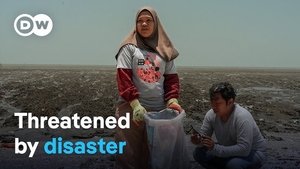
80. Indonesia’s environmental disasters
Air Date: 2024-12-07
Indonesia is grappling with grave ecological problems. While pollution caused by plastic waste threatens ecosystems, Jakarta is sinking into the sea. The city is quite literally going under. Climate activists and authorities are doing what they can to halt the process.

81. Europe's shark trade
Air Date: 2024-12-10
Europe is the largest exporter of shark meat and fins - in an industry worth several billion euros per year. The tons of shark meat found on sale by marine biologist Lukas Müller are mainly from young animals not yet old enough to have reproduced. Activists want an EU-wide ban on the shark fin trade. But for many people in Vigo, fishing is their livelihood. Can a balance be found between economic interests and the protection of our natural world?

82. Battle for the Amazon
Air Date: 2024-12-11
In the Amazon, the Yanomami staunchly oppose the destruction of their habitat. Since the 1970s, illegal gold mining in particular has posed a threat and destroyed the indigenous people's habitat. The situation was further exacerbated when former Brazilian President Bolsonaro declared his intention to legalize the extraction of resources in Yanomami territory. Their shaman and spokesperson, Davi Kopenawa, undertakes a world tour to give a face and a voice to their campaign of resistance. He’s certain that if the shamans stop dancing and life in the rainforest is thrown out of balance, the sky will fall and crush everything beneath it - not just the Yanomami. But can he convince those who are running the country?

83. Smoking - Anatomy of an addiction industry
Air Date: 2024-12-13
The World Health Organization says smoking results in the death of eight million people every year. That’s one reason why you’ll now often hear tobacco companies promoting the switch to e-cigarettes, with claims that these are less harmful to our health. It’s first and foremost young people who believe the industry’s promises, thereby taking the first step on the road to addiction. After all, nicotine is an addictive substance. And although it may taste better than tobacco, puffing on a vape is still going to get you hooked in precisely the same way as smoking a regular cigarette. The film investigates the cynicism of an industry that not only accepts this, but also deliberately aims for it. Big Nicotine - Anatomy of an Addiction Industry /TEMPS PRESENT / Laurent Burkhalter & Philippe Mach / 2024 / RTS Radio television Suisse
84. Lost on the run between Belarus and Poland
Air Date: 2024-12-18
More and more people are taking the migratory route through Belarus - and disappearing without a trace. Relatives from their home countries, such as Iraq, Syria and Egypt, are looking for them. Polish volunteers offer their support in what is often a distressing endeavor.
85. Cyberbullies - Online hate unmasked
Air Date: 2024-12-19
For the first time, a documentary film penetrates deep into the most extreme levels of online hate. Cyberbullies engage in a series of campaigns intended to provoke an intense emotional reaction from the victim. The film explores some of their most perfidious methods. [Warning: This documentary addresses the topic of suicide. If you or someone you know is suffering from serious emotional strain or suicidal thoughts, do not hesitate to seek professional help. You can find information on where to find such help, no matter where you live in the world, on this website: https://www.befrienders.org/ ]

86. The dark side of mass-produced fashion jewelry from China
Air Date: 2024-12-24
Cheap fashion jewelry is a booming business, but its shine hides a dark side. Workers endure starvation wages, and toxic materials in the jewelry endanger customers' health. This film uncovers the origins and production of these items.

87. Collecting, storing and preserving
Air Date: 2024-12-25
We humans like to preserve everything, whether we’ve collected or created it. We want to preserve objects, memories and even microorganisms. How can we preserve our current flood of knowledge, data and objects for future generations? What is important, and what can go? The better storage options become, the more difficult it is to answer this question.

88. Fake steak - Future-proof food and lab-grown meat
Air Date: 2024-12-27
Industrial livestock farming is responsible for around 15 percent of global greenhouse gas emissions. It also requires huge amounts of land and water and is thought to be contributing to the rise in antibiotic-resistant infections in humans. This is why more and more scientists and entrepreneurs are conducting research on alternatives to conventional meat production.
1. War in Congo- Trapped in a spiral of violence
Air Date: 2025-01-04
2. Life between hearing and deafness
Air Date: 2025-01-05
3. Is the sea swallowing up the land?
Air Date: 2025-01-08

4. The intestine- The body's underappreciated control center and gut health
Air Date: 2025-01-09
The intestine is a true marvel. This organ’s complex functions extend far beyond the mere processing of food. The intestine affects the immune system and also has a powerful effect on our emotional well-being.
5. A childhood between Togo and Munich - In search of the truth
Air Date: 2025-01-11
6. Pure luxury or bitter poverty - Living on a roof
Air Date: 2025-01-12
7. The dilemma of international egg donation: going abroad for a baby
Air Date: 2025-01-14
For some women, getting pregnant is only possible through egg donation. It’s a pathway to parenthood with children who aren’t biologically their own. While egg donation is legal in many countries, it’s banned in places like Switzerland and Germany. This film takes a compassionate look at the impact of this medical dilemma and the laws that often make little sense to the people who are affected by them. Why is sperm donation allowed in so many places, but not egg donation? Why do donors in so many places have to remain anonymous, even though it could cause emotional problems for the children? The film also shows that with an empathetic approach, it’s possible to avoid trauma and help children and families navigate this complicated journey.
8. Cambodia - How microcredit is making the world's poor even poorer
Air Date: 2025-01-15

9. In the shadow of trauma- Life after Auschwitz
Air Date: 2025-01-24
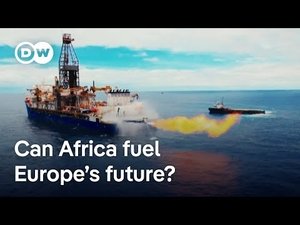
10. Gas from Africa- Europe’s search for new suppliers
Air Date: 2025-01-25
11. Challenges, heartache and confidence: Stories from Eastern Europe
Air Date: 2025-01-30

12. Should we bring extinct species back to life?
Air Date: 2025-02-06
All around the world, scientists are working to recreate lost animal species such as the mammoth. Using modern genetic techniques, they’re extracting ancient genetic material from museum exhibits. However, these practices are also attracting criticism. Biology researchers question the usefulness of revived species for natural habitats. They fear that the excitement surrounding the idea of bringing back extinct species could distract people from the many problems that cause animals to disappear, in the first place. Are some scientists playing God - with unforeseeable consequences for the environment?
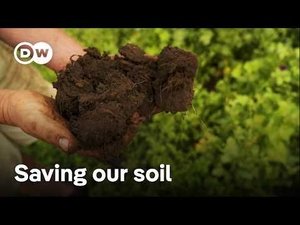
13. How farmers are protecting the soil and our food security
Air Date: 2025-02-14
14. Teenagers of Donbass: Growing up in war
Air Date: 2025-02-14

15. Saving beavers and pond turtles
Air Date: 2025-02-16
16. Haiti- The iron grip of the gangs
Air Date: 2025-02-21

17. The fight for water in Bangalore
Air Date: 2025-02-26

18. Africa‘s tech pioneers- Innovative solutions for a sustainable future
Air Date: 2025-02-27
Ten of the world's fastest growing economies are located on the African continent. Companies in the field of science and innovation are being promoted. Climate-friendly ideas for the future are already being realized in African countries. However, climate change caused by industrialized nations in the northern hemisphere poses a particular threat to Africa. Of the almost 1.5 billion Africans from 54 countries, as many as 117 million people could be at risk from rising sea levels in 2030. By 2100, Africa’s total population could be around 3.8 billion. One solution under consideration is to build a floating city in Lagos, Nigeria, that can adapt to the consequences of climate change.

19. The American abortion war
Air Date: 2025-02-28
In the USA, abortion rights are tearing the nation apart. Abortions are banned in the state of Texas, but that's not enough for anti-abortion activists. They go even further -- and encounter resistance. The film follows one of America's leading abortion opponents, Mark Lee Dickson, in Texas. He wants to prevent women from traveling to another state for an abortion. Dickson and his followers believe that abortion is always murder. They do not even accept the birth control pill. They believe that life begins with the union of sperm and egg. As a result of Texas' strict abortion policy, clinics offering abortions have had to relocate to neighboring New Mexico. How do the bans affect women? And what is it like to work as a doctor who performs abortions? The film examines questions like these. But the film also shows that there is resistance to Dickson's campaigns, including a women's group that opposes the ultra-conservatives.

20. Life in Canada's Great Bear Rainforest
Air Date: 2025-03-05
Canada's Great Bear Rainforest is a place where the rainforest and Pacific Ocean meet. This special forest is home to countless spruce and fir trees. One very special species towers above them all, giving many animals shelter: the giant arbor vitae, or ‘Tree of Life’. Forest and ocean live in symbiosis here. When heavy rainfall erodes the soil, nutrients are transported through the rivers to the sea, where they benefit the humpback whales. Nowadays, however, this complex ecosystem is threatened by massive logging. Here, too, humans are jeopardizing a balance that has existed for thousands of years.
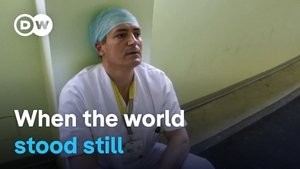
21. The coronavirus pandemic and its consequences
Air Date: 2025-03-02
22. Uganda - Protheses for a new life
Air Date: 2025-03-09
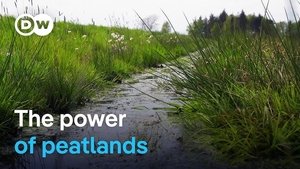
23. Climate protection from moors
Air Date: 2025-03-16
Peatlands bind more carbon than forests. But in Germany, almost all the country’s natural peatlands have been drained. Now, they’re emitting greenhouse gases. People around the world are currently working to rewet the moors - while keeping them usable for agriculture.
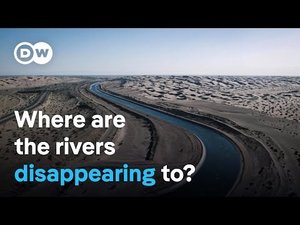
24. Rivers ans risk- Water crisis on four continents
Air Date: 2025-03-22
Water is scarce, but global demand continues to rise. Humanity is facing serious disputes over our most important resource. What impact is our lifestyle having on our planet's water cycles? Along six rivers on four continents, the documentary explores the question of why this vital resource, water, is becoming increasingly scarce - and who’s responsible. 70 per cent of fresh water is used in agriculture. Around 20 per cent of global water pollution is caused by the textile industry. The film provides rare insights into Indian factories and life in the places where contaminants are discharged. But it’s not all bad news. In the film, we also meet people who’ve come up with solutions.
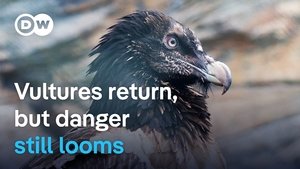
25. The return of vultures to Europe
Air Date: 2025-03-25
Some twenty years ago vultures were close to extinction in much of Europe. Since then, the birds have been successfully reintroduced in parts of Germany, Spain and France. They may be back, but vultures still face many dangers.

26. Luxury clinic for valuable horses
Air Date: 2025-03-26
The film explores the work of one of Europe’s largest and most modern equine clinics, where the specialist vet meets clients with great expectations, and an even greater love for their horses.

27. Panama - Navigating crises at the canal
Air Date: 2025-03-27
Panama's famous canal connects the Atlantic and Pacific Oceans. But, this important gateway for world trade is increasingly blocked. Cargo ships often have to wait weeks for passage, because water levels in the canal are too low. The cause? Drought.

28. Agribusiness in the USA - The dark side of productivity and profitability
Air Date: 2025-04-02
In the USA, agriculture is dominated by two magic words: productivity and profitability. The two million farmers in the United States are impressive businessmen. But their agribusiness is causing great damage. Oversized farms, fattening facilities and pesticides: when it comes to producing more and more, almost anything goes. On cattle fattening farms in the Midwest, thousands of animals are crammed into stalls without a single blade of grass, fattened up and treated with growth hormones. Here, industrial methods are taken to the extreme. In California, carrots, artichokes and strawberries are grown on huge plantations. But this west coast grower’s paradise is struggling with extreme water shortages. Water is pumped from rivers, reservoirs and groundwater reserves at great expense. Faced with a desperate water shortage, farmers are working at breakneck speed -- even if it means that the region's inhabitants have no access to drinking water.
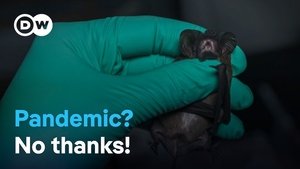
29. Tracking pandemics: Detecting new diseases early
Air Date: 2025-04-06
Corona, AIDS and the Spanish flu have claimed many millions of lives. Now, researchers around the world are trying to better predict and prevent pandemics like these in the future.

30. Hackers, malware and the darknet
Air Date: 2025-04-10
Cyberspace is less secure than ever before. Hackers exploit human error or technical loopholes to steal data -- or publish it on the darknet, if the ransom demanded is not paid. It’s a practice wiith catastrophic consequences. In the film, victims and their relatives talk about how their lives have been impacted by cyberattacks. Company bankruptcies, loss of pension insurance, even suicide - the consequences can be fatal. In the film, viewers also hear from a hacker, who explains how straightforward it is to deprive people of their data.
31. Pirates - Simple sailors or brutal thieves?
Air Date: 2025-04-01
32. Life after violence and explotation- The dark side of sex work
Air Date: 2025-04-13
In 2002, a law was passed in Germany to legalize sex work as a service. The change in the law presupposes that people offer sexual services voluntarily and that they are of legal age. However, the reality is often different. Also, there have been fewer investigations into human trafficking for the purpose of sexual exploitation. But many women are afraid to testify, says Helmut Sporer, a former senior criminal investigator in the field of sex work and human trafficking.
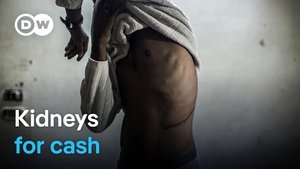
33. The global organ trafficking network
Air Date: 2025-04-14
On the internet, the offer looks very serious: a start to a new life without dialysis, with a new kidney in just a few weeks. A glimmer of hope for seriously ill people who have been waiting for years for a donor organ. Behind it all is a notorious network of international organ traffickers. We have been following the trail for months. At the center is a transplant clinic in Eldoret, Kenya, where patients from Germany and Israel in particular meet donors from countries in the Caucasus such as Azerbaijan. There are also young Kenyans who are persuaded that they are getting a good deal at 4,000 euros for a kidney. Recipients pay up to €200,000 ($222,000 USD) to organ traffickers. There are many indications that local authorities are looking the other way and that politicians are covering up the trade.
34. Camel racing in Egypt
Air Date: 2025-04-19

35. Eternal Life? The secrets of the centenarians
Air Date: 2025-04-20
In the villages on Sardinia's east coast, people live longer than almost anywhere else in the world. But why? Is it due to nutrition? The good weather? Or genetics? Scientists around the world are attempting to solve the mystery.

36. The life of Pope Francis and its most important moments
Air Date: 2025-04-21
In March 2013, Jorge Mario Bergoglio from Argentina was elected 266th Pope, the first South American to become spiritual leader of the Catholic Church. He set out to reform the Vatican and the papal office, advocated climate protection and inter-religious dialogue.The name he chose toi be known by refers to St Francis of Assisi. Following "the little poor man’s” example, Bergoglio wanted a "poor church for the poor". In memory of Pope Francis, Deutsche Welle is rebroadcasting the feature "Pope Francis — A Shepherd in the Storm.” On the occasion of the Pope's 85th birthday in December 2021 our report was an opportunity to take stock of his pontificate. What was this Pope able to change and reform; where were his limits? How did he lead the Catholic faith community through a time marked by crises and scandals?
37. Dr. Sanduk Ruit’s Himalayan mission
Air Date: 2025-04-22
Sanduk Ruit has devoted his life to healing as many cataracts sufferers as possible. The Nepalese doctor, who himself comes from a modest background, wants to ensure high-quality surgery for patients living in grinding poverty - even where there is no hospital in the vicinity. The 70-year-old and his team have now treated well over 100,000 people with cataracts. This documentary accompanies Sanduk Ruit to an extremely remote region of the Himalayan Mountains, where every 12 years the Dolpo region of Nepal hosts the Shey Festival at an elevation of over 4,000 meters. It’s a centuries-old cultural event, which is rooted in Tibetan Buddhism and draws people from far and wide - and for the doctor, a perfect opportunity to treat a large number of patients in one location.
38. A sperm donor and his 30 children
Air Date: 2025-04-23

39. Francis - A pope for the poor and the marginalized
Air Date: 2025-04-25
The papal appointment of Argentine national Jorge Mario Bergoglio wrote history. For the first time, a non-European and Jesuit had been made head of the Catholic Church. He was also the first Pope to take the name Francis. Francis of Assisi, founder of the Franciscan order, is venerated as patron saint of the poor. Pope Francis was drawn to his example and tried to emulate his qualities. The film, broadcast in March 2014 one year after Francis took office at the Vatican, compares the story of Francis of Assisi with the actions and deeds of the Pope. He was - just like his role model - a man of peace and dialog. He advocated for a merciful Church; even in pre-papal years as a priest in Argentina. The film shows that throughout his life, he never forgot the poor and the marginalized.

40. Orlando- The dark side of the world's theme park capital
Air Date: 2025-04-26
With dozens of theme parks, Orlando is seen as a paradise for fans of attractions and rollercoasters. But the shiny, fairytale world also has a lesser-known, darker side. Negligent safety measures have resulted in accidents, some of them fatal. In one accident in 2022, a teenager tragically died on the Free Fall ride. And for park employees, life in the Sunshine State of Florida is often far from rosy. Many struggle to survive on minimum wage, while others are homeless.
41. The Vietnam War
Air Date: 2025-04-27
Using original and archive material, the film tells the story of the Vietnam War, beginning with the Indochina War and liberation from the colonial power France to the 1990s, when relations with the USA were finally normalized.

42. Bioplastics and other innovations against climate change
Air Date: 2025-04-28
Researchers from various disciplines are determined to fight climate change. At Kassel University in the German state of Hesse, for example, research is being carried out on a new method of producing concrete that is low in CO2 emissions. In the neighboring city of Giessen, two researchers invented bioplastic - by chance. What began with a forgotten petri dish is now set to revolutionize the region’s packaging industry. All these examples show how science is working hard to protect the climate. The film takes viewers into the laboratory -- and explains the relevance of today's research for how we’ll be living our lives tomorrow.

43. Nigerian communities vs. Big Oil
Air Date: 2025-04-29
The Niger Delta in Nigeria is one of the most polluted areas on earth - due to repeated oil spills. Environmentalists, scientists and lawyers are working together to restore the damage and seek justice for local residents.
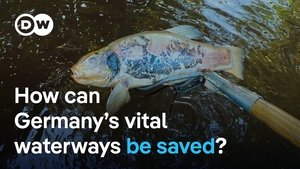
44. Germany’s rivers are dying - Pollution, extinction and the fight for clean water
Air Date: 2025-04-30
Most of Germany’s rivers are in poor condition. Pollutants from industry and agriculture contaminate the water and lead to algal blooms and species die-offs. Environmental advocates and riverbank residents are fighting for more protection for waterways.

45. How our relationship to work is changing
Air Date: 2025-05-01
According to estimates, Artificial Intelligence and automation will replace a large proportion of the global workforce in the coming decades. So, it's time to look for concepts for a post-work era. Based on interviews with people in Kuwait, Italy, the USA and South Korea, the film examines the human relationship to work and explores the question: What will we do, when we no longer have to work?
46. Buthan- Back to the roots, with a Buddhist monk
Air Date: 2025-05-02
47. Son of the Mullah- Escape from Iran
Air Date: 2025-05-03
48. Danger from the North Sea- The search for explosive ordnance from WWII
Air Date: 2025-05-04
49. Hitler's Reich- Diaries of Nazi supporters, opponents and victims (1/4)
Air Date: 2025-05-05
50. 1945- The world after World War Two
Air Date: 2025-05-07
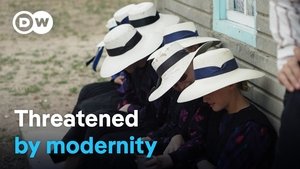
51. Mennonites- A hidden world in Argentina
Air Date: 2025-05-09

52. The cartels that control Mexico's mega market
Air Date: 2025-05-10
53. A tough business- The oyster farmers of Arcachon
Air Date: 2025-05-10

54. José Mujica- Life in a globalized world
Air Date: 2025-05-13
55. Hitler's Reich- Diaries of Nazi supporters, opponents and victims (2/4)
Air Date: 2025-05-14
56. What's life like for Canada's queer indigenous community?
Air Date: 2025-05-15

57. A global longevity movement- Eternal life with biohacking?
Air Date: 2025-05-16
58. Animals on Instagram - Costumed dogs and tigers in Lamborghinis
Air Date: 2025-05-18
59. Hitler's Reich - Diaries of Nazi supporters, opponents and victims (3/4)
Air Date: 2025-05-21

60. AI and biodiversity
Air Date: 2025-05-22
The sixth extinction of species is in full swing. In the race against time, researchers around the world are relying more and more on high-tech. This visually stunning documentary shows the race to build futuristic technologies to protect species.

61. The new face - The hyaluron beauty hype
Air Date: 2025-05-23
Hyaluron has been used with increasing frequency, as social media normalizes lip injections. In Germany, this beauty industry procedure may only be carried out by doctors or alternative medicine practitioners - professionals who understand the risks. The market for aesthetic surgery has grown rapidly. However, some offers are questionable -- and can have serious health consequences.
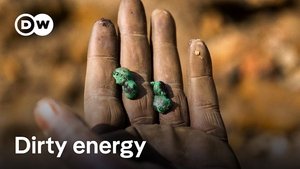
62. Illegal cobalt mining in the Congo
Air Date: 2025-05-27
Cobalt is a highly prized metal, especially for makers of smartphones and EVs. Almost 75% of global production comes from the Democratic Republic of Congo - where there are also children toiling away in the mines. In protest, activists have repeatedly called for a boycott on cobalt from the DRC. To what extent is child labor a factor in cobalt production today, and what can consumers do to combat it? What about corporate responsibility? Are companies doing enough to ensure the cobalt they're using hasn't been mined by a child?
63. Hitler's Reich- Diaries of Nazi supporters, opponents and victims (4/4)
Air Date: 2025-05-28

64. Australia's king eucalyptus
Air Date: 2025-05-29
Vast areas of Australia are covered by forests of giant eucalyptus. According to the Aborigines, the ‘king’ eucalyptus, which can grow up to 100 meters high, has mythical power. However, humans are disturbing this natural balance. Global warming and humans‘ use of forests are increasingly leading to large fires. These destroy millions of hectares of forest -- and spare hardly any living creatures. A natural system that is thousands of years old is in danger.
65. Michelangelo, Raphael and Leonardo da Vinci
Air Date: 2025-05-30
66. The trade in human skulls from the colonial era- A disturbing legacy |
Air Date: 2025-05-31
"African human skull, early 20th century, 2,000 euros." Adverts like this can be seen on social media. The trade is legal in Germany, even when the skulls date from the German colonial era. Customs expert Daniel Bein says the trade in human skulls is not prohibited per se. But politicians are now evaluating the issue, and plan to introduce legislation that will ban private trade in human skulls and bones. The filmmakers conduct research at home and abroad, visit an international market for human skulls, meet one of the largest dealers in London and speak to buyers in Germany. They also accompany people who are themselves searching for the skulls of their ancestors, to bring them back to their homeland.

67. Orca interactions- Danger in the Strait of Gibraltar
Air Date: 2025-06-04
Since 2020, reports have increased of boats being rammed by orcas along the European Atlantic coast. The whales make a beeline for the hulls and rudders. Researchers are trying to find out why. Researchers largely agree that the Gibraltar killer whales are under severe stress. There’s heavy marine traffic in the strait and along the entire Iberian coast. Humans and animals compete for tuna, and noise pollution is high. The documentary hears from researchers, scientists and the boat crews themselves, about the unusual behavior of these animals.

68. The wonderful world of fungi
Air Date: 2025-06-06
Life on Earth wouldn’t be possible without fungi. Yet they largely elude our view, as they form a finely tuned network that runs through the soil of the forests. Everywhere on Earth. Whether in the centuries-old rainforests of Tasmania or in China's Yunnan Province - researchers are trying to understand exactly how fungi maintain the balance of ecosystems. So much more than mushrooms, fungi shape weather and support life on land. They’re also at the cutting edge of medical research, and even have the power to break down plastic waste. Whether under the microscope or in the woods, the dazzling images in this documentary immerse you in the mysterious world of mushrooms.
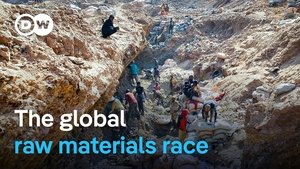
69. Exploiting Africa
Air Date: 2025-06-07
The global race for the African continent‘s coveted raw materials is unscrupulous. The raw material interests of rich nations often trump the rights and needs of the local populations.
70. Why did the Neanderthals die out?
Air Date: 2025-06-12
The extinction of the Neanderthals, the one species that dominated the Eurasian continent prior to the arrival of Homo sapiens, is one of the most puzzling topics in archeology. How were these two hominids connected? Was Homo sapiens partially responsible for the eradication of the Neandertals from planet Earth? Or did the two potentially coexist over several millennia? A team of researchers led by archaeologist Ludovic Slimak are working in the Mandrin Cave to answer these very questions. Their findings are being examined by scientists from the French research organization CNRS, using state-of-the-art archaeological methods.

71. The psychological impact of a world in crisis
Air Date: 2025-06-17
Natural disasters and wars, each seemingly more devastating than the last. Are we becoming desensitized to this constant stream of bad news? And could that actually be necessary to help us stay functional amid global conflict and the climate crisis?

72. The sacred birches of the Taiga
Air Date: 2025-06-18
The taiga is the largest contiguous vegetation zone in the world. The birch plays a special role in this boreal coniferous forest. Its light-colored bark forms a perfect insulating layer. Symbiotic fungi protect its roots from attackers. But increasingly extreme summer heatwaves are threatening the fragile ecosystem of the boreal coniferous forest. Animal and plant species must adapt - or migrate further north to escape extinction.
73. Defenseless people- The Yazidis and their lives after the genocide
Air Date: 2025-06-19
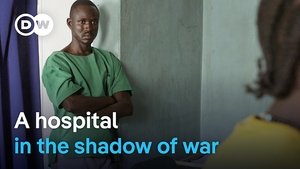
74. War in Sudan- A surgeon and his team working to save lives in the Nuba Mountains
Air Date: 2025-06-21

75. Artificial intelligence in agriculture
Air Date: 2025-06-22
The way we feed ourselves is changing. Agriculture will also be impacted by Artificial Intelligence. Could AI present an opportunity for increased food security in the future? Ethical issues are a major hurdle when using AI. Ameca, the world's most advanced humanoid robot, guides us through the film with his assessments: What are the potentials and limits of AI?

76. How a village in Senegal is using solar energy to bring itself into the modern age
Air Date: 2025-06-25
In a remote village in Senegal, a woman is using solar energy to bring progress. Against her husband's wishes, she trains to become a solar technician. Four months later, the women return to the village, bringing with them much-desired know-how. They explain how the houses can be supplied with solar energy. Little by little, solar power is finding its way into people's everyday lives. Through their actions and their training, the women subtly raise questions about the meaning of modernity -- and the position of women in society.
77. An endless war: Iran, Israel and United States (1/2)
Air Date: 2025-06-26
78. An endless war: Iran, Israel and United States (2/2)
Air Date: 2025-06-26

79. How the internet warps our emotions
Air Date: 2025-06-27
Is the internet making us emotionally numb? Online trolls and influencers expertly manipulate people's feelings, leading many to disconnect from their emotions. Scientists explain how the internet influences what we feel- and whether we feel at all.
80. By train to Hudson Bay
Air Date: 2025-07-01

81. Cape Verde: Island paradise with a dark side
Air Date: 2025-07-02
Endless beaches, majestic mountains and villages with multi-colored houses: Cape Verde has become one of the hottest new destinations for social media influencers. Here, tourists can enjoy a week at an all-inclusive resort for as little as €700, including travel. But virtually none of this benefits the island. Indeed, a lack of opportunities, coupled with a severe drought, mean that some women have to resort to stealing sand from the sea floor in order to survive. The islands are on the frontline of global warming. It has hardly rained in the past seven years. While tourists enjoy numerous huge swimming pools and are unaware of the crisis, families in Cape Verde are restricted to a few 25-liter containers of water per day. All food and supplies for the hotels are imported from wherever they can be sourced cheapest, providing no benefit to the local economy.

82. Switzerland’s gold
Air Date: 2025-07-03
Four of the seven largest gold refineries in the world are located in Switzerland. However, the legal regulations are weak. What is the industry doing to ensure that no "dirty gold” ends up in Switzerland? In 2023, the United Nations sent a letter to the Swiss government. The accusation: Their laws were too lax. As a result, Switzerland was becoming a gateway for gold sullied by human rights violations, child labor, mercury poisoning, environmental destruction or involved in the financing of illegal groups. Industry representatives and the Swiss government claim that great efforts are being made to make supply chains transparent. The film examines how successful these efforts are. Can supply chains be fully traced and monitored? A trip to the largest gold producers in Africa shows the chasm between Switzerland’s claims and the reality on the ground.

83. Caregivers from South America negotiate Germany's jungle of red tape
Air Date: 2025-07-04
Germany is reliant on skilled labor from other countries. But German bureaucracy makes it difficult for people like Yanileidy. She came from Colombia to work as a nurse. The original plan -- to put her family life on hold -- ultimately broke her family up. "German bureaucracy really isn’t kind,” says Yanileidy. The Colombian pediatric nurse left her two small children at home in the hope of being able to lead a better life as a nurse in Germany. The plan was that after her first few months, her family would follow her. But bureaucratic hurdles turned those months into years. In the end, her marriage didn’t survive the long wait. "We can't afford such complicated bureaucracy,” says Isabell Halletz, head of the German Employers’ Association of Care Providers. Nursing staff are already dropping out in droves and choosing to go to the US or Canada.
84. Everyday life in the Bosnian War - What happened in Srebrenica?
Air Date: 2025-07-05

85. How sustainable are tomatoes?
Air Date: 2025-07-06
Delicious, sweet, low in calories: Tomatoes have a good reputation. They’re the most important vegetable in the world, with a total production of 190 million tons per year. But how sustainable is their cultivation?
86. Crypto fraud: The OneCoin scandal
Air Date: 2025-07-09
OneCoin was launched in 2014 and billed as the world's largest cryptocurrency. Founder Ruja Ignatova earned many millions of Euros before a tech nerd stepped in to stop the scam - putting himself in danger.

87. Superpower or escape from reality: What is maladaptive daydreaming?
Air Date: 2025-07-11
Many people daydream. But excessive daydreaming can become a burden. This is because the exaggerated mental digressions, termed Maladaptive Daydreaming (MD), often get in the way of real life. Although the fantasies in daydreams can also help to organize thoughts, reduce stress, process events and wishes and inspire creativity, the film shows that ‘too much of a good thing’ prevents people from mastering their everyday lives and completing important tasks. And if the hopes expressed in daydreams aren’t fulfilled, it can even be a trigger for depression.

88. Oppenheimer after Trinity
Air Date: 2025-07-16
American physicist Julius Robert Oppenheimer is regarded as the father of the atomic bomb. Delving into his complex mind, this prize-winning documentary explores what happened before, during and after the testing of the world's first atomic bomb in the deserts of New Mexico in July 1945.
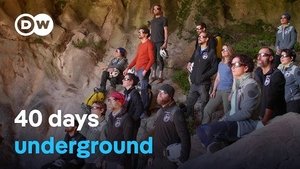
89. Without time, without light - How do the brain and body react?
Air Date: 2025-07-17
14 volunteers live underground for 40 days. With no way to mark time, this is an extreme experiment. How do people adapt to these conditions? How do the body and brain react to the loss of a sense of time? A scientific adventure aims to find out.

90. Racism, hatred and terror - The global network of rightwing extremists
Air Date: 2025-07-18
Racist and right-wing extremist networks are coalescing, worldwide. They carry out terrorist attacks on minorities and democratic institutions. Authorities in the USA and Europe consider this movement to be more dangerous than Islamist terrorism. Filmed in the USA, western and eastern Europe, the UK, Scandinavia and Brazil, WORLD WHITE HATE charts the development of the threat posed by right-wing terror. It is exacerbated by populist politicians such as Donald Trump and radical right-wing parties. The documentary WORLD WHITE HATE by Dirk Laabs analyzes the mechanisms of radicalization and discusses possible counter-strategies for democratic societies. The central question remains: “How can we win the digital and real battle against increasing violence from the right?”
91. New alliances in East Asia?
Air Date: 2025-07-19

92. Deep sea mining: What’s the true cost of renewable energies?
Air Date: 2025-07-20
The idea is that electric cars, solar panels and wind turbines will reduce our consumption of coal, oil and gas. However, these technologies rely on many raw materials present below the seabed. The race for deep sea resources has begun. The immense demand for metals such as nickel, cobalt and copper for electromobility and alternative energy sources has so far largely been met in the Global South - in Africa, Asia and Latin America. But these deposits aren’t enough. Attention is now turning to the oceans. Here, it’s thought that vast deposits of the metals exist below the seabed. A geopolitical race has begun between states to exploit these resources. And that's not all: extraction of the metals threatens to cause major ecological damage.

93. Nitrous oxide - How harmless is laughing gas really?
Air Date: 2025-07-22
Nitrous oxide, commonly referred to as laughing gas, is often considered a harmless way of getting high. In Germany, you can buy it freely over the counter. But while the gas might make you feel relaxed or elated for a few seconds, it can also lead to long-term health problems.

94. Are fish smarter than we thought?
Air Date: 2025-07-23
For several years, researchers have been trying to understand what goes on in the minds of aquatic creatures. And the latest discoveries exceed all expectations. The documentary presents these astonishing findings and illustrates how fish perceive the world, communicate with each other and interact with their environment.

95. A small Polish village saves the moors
Air Date: 2025-07-24
The Polish village of Rozwarowo in northern Poland is saving the moors. Local thatcher Alfred Smolczynski initiated the process: He’s been renaturalizing the moor since the 1980s, in the face of much resistance. Now, bird conservationists are reintroducing the sedge warbler there.
96. Hitler's invasion of the Soviet Union: Operation Barbarossa (1/2)
Air Date: 2025-07-25
97. Hitler's invasion of the Soviet Union: Operation Barbarossa (2/2)
Air Date: 2025-07-25

98. Wars and their toxic legacy
Air Date: 2025-07-30
Until the 2000s, France submerged, buried or destroyed thousands of tons of ammunition. Long forgotten, these rubbish heaps are now releasing pollution that is toxic and carcinogenic. The film follows environmental activists over the course of a year as they investigate the consequences of these buried weapons.

99. Hiroshima - A story of survival, loss and forgiveness after the atomic bomb
Air Date: 2025-08-02
On August 6, 1945, at 8:15 a.m., the first atomic bomb explosion in a war killed more than 70,000 Japanese civilians in Hiroshima in one fell swoop. Countless others, seriously injured, fought for their lives. The massive detonation wave completely destroyed 80 percent of Hiroshima’s city center. Just 1,200 meters away, Shinji Mikamo and his father Fukuichi miraculously survived the catastrophe. Shinji was rescued from the danger zone by his father, who was also wounded and suffering from severe injuries and burns. It was a long, painful journey. When they parted ways, the teenager Shinji had to survive on his own. The documentary shows the true story of Shinji's journey of survival and forgiveness. It combines rare footage with poignant re-enactments to create a haunting first-hand account of the horrors of nuclear war. It was produced by Shinji's daughter Akiko. She sends a message of peace to the world, so that "no one has to suffer from nuclear war again”.
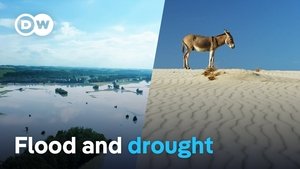
100. Water - Too much and not enough
Air Date: 2025-08-06
Water forms the basis for all life on Earth. It has shaped human activity and influenced the development of entire societies. Water has always been a mainstay of health, prosperity and power. Water means life or death. Experts around the world are urging us to rethink the way we use water. Fresh water accounts for only 2.5 percent of the total volume of water on earth. Water is practically never "lost" on Earth. But precipitation volumes and zones are changing. Extreme weather conditions last longer and become more intense. The consequences are obvious and far-reaching. Drinking water shortages, dwindling water levels in lakes and rivers, floods and mudslides are increasingly becoming the focus of media coverage. Consumption must not simply continue to rise from year to year. Rather, we must make better use of what is available to us. On the one hand, this means using extracted water more efficiently and, on the other, finding solutions to adapt to the new circumstances.
101. Burnout - What are the warning signs?
Air Date: 2025-08-07
Every year, hundreds of thousands of people worldwide suffer burnout. This mostly invisible and insidious illness often gnaws at those affected for a long time. Often, they report not knowing why they feel so bad. Diagnosis is difficult. How can you recognize the symptoms before it’s too late? What are the warning signs? What tools do we have to deal with it? And why does the WHO not recognize burnout as a disease? In Europe and North America, measures are now being taken to prevent the onset of the disease and to measure its cost to society. In France, structures are being created for the care and reintegration of those affected. However, there still seems to be a long way to go before mental health in the workplace becomes a priority again in today's world.
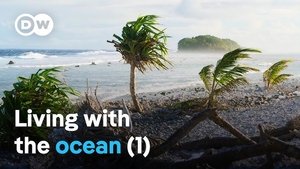
102. Treasure islands in the Pacific (1/2)
Air Date: 2025-08-08
The Pacific Ocean is larger than the entire land mass of the Earth combined. Today, it is increasingly becoming a strategic arena for the world’s major powers - each seeking to safeguard its own economic and political interests. Lucie Knor, a German doctoral student, is researching how an increased uptake of greenhouse gases is affecting living conditions in the ocean around Hawaii. On the Cook Islands, the team finds out how climate change impacts the lives of whales. Whale researcher Nan Hauser and her team hope that their work will shed new light on the migration of whales - to protect them. Many islands are facing an uncertain future. But on the Cook Islands, people are hoping for a new gold rush, thanks to the presence of minerals in the seabed that could become increasingly valuable as demand for renewable energies grows. Mark Brown, head of the Cook Islands government, says deep-sea mining has the potential to make his island nation more economically independent.

103. Treasure islands in the Pacific (2/2)
Air Date: 2025-08-14
On the Chatham Islands, we learn how loneliness becomes a daily challenge when you live surrounded by so much water. A supply ship fails to arrive on time, leading to food prices rising quickly and diesel becoming scarce. But there is a treasure that is harvested in this remote region - something prized by gourmets that fetches high prices: abalone. Jade Kahukore-Dixon dives for these precious sea snails, gathering them at depths of 10 to 15 meters. But the job is dangerous. This is great white shark territory. Divers are regularly injured or even killed. Over on the Marshall Islands, we find the area where the United States tested atomic and hydrogen bombs until the 1960s. The people of these remote atolls are still living with the consequences. On Runit Island lies one of the world’s largest nuclear waste sites - the structural integrity of which is now under threat because of rising sea levels and tropical storms.

104. Is there an effective alternative to antibiotics?
Air Date: 2025-08-15
Is there an effective alternative to antibiotics? Researchers around the world are focusing on bacteriophages. These "good" viruses infect specific bacteria and destroy them. Do they offer a way out of the antibiotics crisis? Every year, around 1.3 million people die because of antibiotic resistance. According to the World Health Organization (WHO), this is one of the biggest threats to global health. There are various reasons for the growing number of antibiotic resistances: Unspecific or incorrect use of antibiotics causes bacteria to mutate into multi-resistant germs. In addition, the excessive use of antibiotics in animal husbandry has alarming consequences for humans: Antibiotics, which were considered one of medicine's greatest achievements against infections, are increasingly losing their effectiveness. Increasingly, science is relying on the potential of bacteria-eating viruses, or bacteriophages, to combat bacteria.
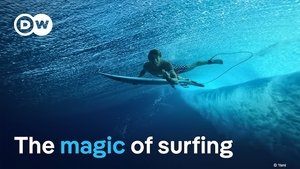
105. Surfing - Once upon a wave
Air Date: 2025-08-16
The documentary tells the fascinating story of surfing. With breathtaking footage, the film provides insights into a sport that has its origins in Polynesian culture. It was filmed on the coasts of Tahiti, Hawaii and California. Surfing is a sport that’s far more than just a game: It’s also the expression of a culture. In this case, it is the culture of a people who live with and on the water - the Polynesians. The art of riding the waves is their ancient heritage. Surfing was on the verge of extinction almost a century ago - a thorn in the side of Christian missionaries. It owes its resurrection to a handful of young runaways, businessmen and rebellious young men and women from all over the world. Their stories are told here. Surfing grew in popularity around the world, and eventually became a competitive sport, earning a place in the Olympics.

106. International adoptions - A global scandal
Air Date: 2025-08-20
In the last 60 years, over a million "orphans” have been adopted by Western families. Many of them are now discovering that their past is a lie. International adoptions are at the center of an unprecedented scandal. The film follows investigative journalists, activists and researchers in South Korea, Sweden, France, Chile, Germany and Switzerland. How was this huge, lucrative market able to flourish? And why does it still exist today? In many cases, these practices come to light mainly due to pressure from adopted children who have grown into adults. After discovering the dubious conditions of their adoptions, they begin to search for their birth parents and demand explanations. These searches are often easier to conduct these days, thanks to social media, the Internet and the availability of genealogy websites.

107. Superpower laughter - How humor makes us strong
Air Date: 2025-08-21
Laughter is both contagious and a social behavior: people laugh 30 times more often in company. The documentary shows how neuroscience and psychology have discovered that humor makes us stronger. In London, neuroscientist Sophie Scott has dedicated herself to researching laughter. "Laughter plays an important role in building and maintaining social relationships. It reduces stress and relaxes us. It is an important behavior to understand," she says. This is why laughter is also interesting for psychology. A research team at the Alpen-Adria-Universität Klagenfurt is exploring how humor can help in psychotherapy.
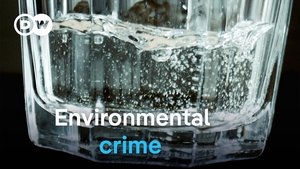
108. PFAS - "Forever chemicals" in drinking water
Air Date: 2025-08-24
It’s one of the biggest environmental scandals ever to hit Germany. In 2012, a routine inspection uncovers industrial chemicals, known as PFAS, in the drinking water of the southern German town of Rastatt. PFAS, perfluorinated and polyfluorinated alkyl compounds, are found in many everyday products such as Teflon pans and water-repellent clothing. They accumulate in the environment and in tissue and can cause considerable damage. PFAS pose risks to human health including an increased risk of certain cancers, fertility issues and a reduced response to vaccinations. PFAS are highly persistent in the environment and don’t readily break down, which is why they’re also known as "forever chemicals". The EU is currently considering a PFAS ban.

109. Can Norway’s wild salmon be saved?
Air Date: 2025-08-26
Factory farming is threatening to wipe out wild salmon populations in Norway - due to the dramatic spread of parasitic salmon lice. Can the wild salmon still be saved? On Norway's vast salmon farms, a parasite is causing mass deaths of fish. Salmon lice have gotten out of control, infesting not just farmed salmon but also the wild salmon that swim between the sea and Norway's rivers. The parasites are finding their way into open water from the open-net cages of off-shore salmon farms, where millions of fish swim. Fishing enthusiasts, scientists and environmentalists are fighting to preserve the wild salmon as well as the culture it represents.

110. Children in elite sports - A lost childhood
Air Date: 2025-08-27
For top-class sport, many people have had to sacrifice their childhood. Even before they reach the age of 10, some have experienced a range of abuse. More and more athletes are speaking out, in order to draw attention to this.

111. TikTok, China and the fear of digital propaganda
Air Date: 2025-08-28
TikTok is the most popular app among young people, with more than 1.6 billion users worldwide today. Streaming videos featuring influencers in particular draw huge numbers of viewers. But TikTok is highly controversial. Not just because the app has a very opaque content management system and collects a massive amount of its users' personal data. This, after all, is also the case with many other social media and apps. However, TikTok is owned by a Chinese company, Byte Dance. This is why the governments of Europe and the US in particular suspect that all the data collected could be passed on to the Chinese regime. They, in turn, could use it to influence public opinion worldwide.

112. Globalization - How crises change our world (1/2)
Air Date: 2025-08-29
The battle for raw materials. Climate change. Digitalization. These things have rapidly changed the world. Who wins, who loses? What is yet to come? This film looks at how lives are shifting, in seven regions of the world.

113. Globalization - How crises change our world (2/2)
Air Date: 2025-08-29
The battle for raw materials. Climate change. Digitalization. These things have rapidly changed the world. Who wins, who loses? What is yet to come? This film looks at how lives are shifting, in seven regions of the world.
114. The orphans of World War Two
Air Date: 2025-09-03
The Second World War claimed the lives of millions of people and left many children orphaned. One of the worst-affected countries was Poland, where entire families were wiped out. This documentary highlights the desperate fate of these children orphaned by war.

115. Tardigrades - Showing us the way of immortality?
Air Date: 2025-09-04
Their appearance is amusing - and they’re extremely hardy. Tardigrades are microscopic creatures. Their lumbering gait resembles that of bears, and they can withstand extreme temperatures, enormous pressure, toxic substances and radioactive radiation. NASA sent them into space in 2021 on board the ISS, where they orbited the Earth around 7,000 times. Thanks to the cute tardigrades, it may even be possible to find a way to send humans to Mars in the future. The survivalists show that life is possible everywhere - even where it seems unimaginable.
116. German colonial crimes in Tanzania
Air Date: 2025-09-12
117. DNA tests: Who is getting rich with the data from our genes?
Air Date: 2025-09-13
118. Our immune system - Miracle weapon against cancer?
Air Date: 2025-09-19
Our immune system protects us from pathogens, harmful substances and malignant cell changes. For humans, it is indispensable. This film examines the immune system and shows how it can be strengthened - as well as how it can fail. The film presents fascinating examples, clear explanations and interviews with international experts. A pediatrician in Hamburg explains how the immune system develops in infants and young children. Immunologists in Paris and New York shed light on the relationship between the microbiome and the immune system. And an oncologist in Heidelberg uses immunotherapy to specifically combat cancer. Never before has the immune system been the focus of so much scientific research as it is now.
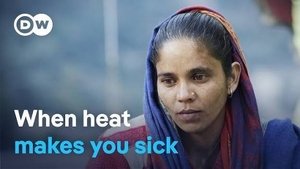
119. Living with climate change
Air Date: 2025-09-24
In the global North, climate change is often still something very abstract. For people in countries like India or the Philippines, however, it is already very real. Extreme heat dominates everyday life. Heavy rain washes away houses and roads.
120. The San Andreas Fault
Air Date: 2025-09-30
California is one of the most active earthquake regions in the world. The San Andreas Fault, a 1,300-kilometer-long fracture zone in the earth's crust, runs through the cities of San Francisco and Los Angeles. Scientists fear a major earthquake. The San Andreas Fault is currently the most strongly observed geological phenomenon in the world. Scientists have long feared an earthquake so strong that it could mean the death of thousands of people. Economic damage, running into the billions, would also result. The documentary shows the scientific efforts being made to predict the unpredictable. International seismologists are studying the fault to make more accurate forecasts. The aim is also to reduce the risks for people.
121. Israelis and Palestinians working together for peace
Air Date: 2025-10-04
Israelis and Palestinians are working together for peace. Despite the terrorism of Hamas, Israel's brutal war on Gaza, and violence against Palestinians in the West Bank, people on both sides are seeking reconciliation.

122. The hidden realities of farming (1/2)
Air Date: 2025-10-09
Where does our food come from, and where does it end up? This two-part series looks at the journey from production to plate, exploring the hidden world behind the food we eat.

123. Autism: Understanding the ‘spectrum’
Air Date: 2025-10-10
For people with autism, recognizing a smile or enjoying a touch is often not possible. More and more people, especially children, are being diagnosed with "autism spectrum disorder”, a complex neurological condition. Despite an increase in the number of people diagnosed with autism, many autistic people still remain undiagnosed. This is because autism is highly complex and can manifest in many different ways. Some of those affected can live lives similar to people without autism, while others require lifelong care. The causes of autism are also a mystery. Scientists around the world are working to find out why the brains of people on the autism spectrum develop differently. This would help medical practitioners to establish reliable methods of diagnosis and effective therapies.
124. The Cuban Missile Crisis
Air Date: 2025-10-11
125. Women in Mexico fight femicide
Air Date: 2025-10-12

126. The hidden realities of farming (2/2)
Air Date: 2025-10-16
The photographer and filmmaker Kadir van Lohuizen embarks on an investigative journey into the food we eat each day. His research takes him to the US, China, the Netherlands, Kenya, Saudi Arabia and the United Arab Emirates—exposing the problems and contradictions of globalized food production. It is a wake-up call for global agriculture, asking the question: How can we secure the future of our food supply without further endangering our planet?

127. Invasive fungal infections - The new threat
Air Date: 2025-10-17
Invasive fungal infections are increasingly leading to life-threatening diseases worldwide. And in agriculture, fungi pose a massive threat to harvests. And the available antidotes for humans and plants are increasingly losing their effectiveness. The documentary shows the role that intensive agriculture and climate change play in the spread of fungal infections.

128. How the world is choking on plastic
Air Date: 2025-10-22
Plastic is everywhere, not just in our rivers and oceans. It permeates the air, soil, and even our bodies. The problem is getting worse, and yet the plastics industry is increasing production. Is the plastics industry listening? Can people trust it to take responsibility for plastic products after the end of their life cycle? And what solutions are there in a world that is increasingly choking on plastic?
129. Weapon of war: Sexual violence against men
Air Date: 2025-10-25

130. Amazon: Who pays the price?
Air Date: 2025-11-25
Online retailer Amazon has been repeatedly criticized for its business practices. The US company puts pressure on retailers and exerts influence on pricing policies, thus fueling cut-throat competition.
131. Neuschwanstein - Fairytale castle and architectural icon
Air Date: 2025-11-28
132. Machu Picchu - The secrets of the Inca builders
Air Date: 2025-12-03
133. Images of war - The legacy of photographer Anja Niedringhaus
Air Date: 2025-12-20

1. A revolution in transplant medicine
Air Date: 2026-01-03
More donor organs are needed, but too few are available. Could the future of transplant medicine be found in the laboratory? Doctors and scientists around the world are researching ways to produce organs artificially.
2. Dictators, drugs, discord - Latin America and the USA (1/3)
Air Date: 2026-01-10
3. Dictators, drugs, discord - Latin America and the USA (2/3)
Air Date: 2026-01-10
4. Dictators, drugs, discord - Latin America and the USA (3/3)
Air Date: 2026-01-10

5. The War of the Worlds - The prophetic novel
Air Date: 2026-01-11
H.G. Wells redefined science fiction. "The War of the Worlds” was the first story about an invasion by aliens that simultaneously managed to raise questions about human progress, immortalize Martians, and inspire countless adaptations. This documentary traces how Wells used science fiction as a moral and political fable to criticize colonialism and modernity. Wells also warned of the dangers associated with industrial, scientific, and technological progress.
6. Inside the 'Woman, Life, Freedom' protest movement in Iran
Air Date: 2026-01-15

7. Cities on the ocean
Air Date: 2026-01-23
Cities, floating on the ocean. It sounds like science fiction, but could soon become reality. Researchers are developing concepts for life on water - on a grand scale. Initial tests are promising. Is success a genuine possibility?
Select an episode to start watching
Rating
0.0/10
Release Date
2017-01-09
Episodes
275 (10 seasons)
Status
Returning Series
Cast
Production Companies

DW